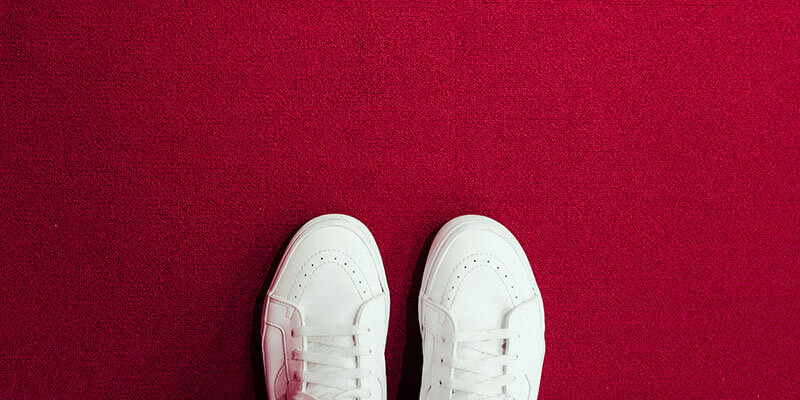For anyone who’s ever purchased an ill-fitting pair of shoes, you understand how painful and frustrating this situation is, both literally and figuratively. Of course, this situation is a pain for all persons, but when it comes to nurses, improper shoes can mean the difference of having a productive and swift shift or one that’s dulled with foot pain and potentially dangerous encounters. While there are literally hundreds of different nursing shoe styles, designs and shapes, trying to determine your perfect pair of nursing shoes is much easier said than done.
Shoes are far more than stylistic choices. For nurses, footwear impacts the comfort and safety throughout your shift, which means an improper shoe choice can negatively impact your overall efficiency. Of course, this also means by choosing your perfect pair of nursing shoes, you can go about your day in comfort and safety.
In order to simplify your search for the perfect nursing shoe when you start your nursing career, there are several essential factors you must consider. While each of the elements we’ll discuss below are important, the biggest consideration you must keep in mind is choosing a shoe that’s not only comfortable, but one that supports the type of work you must perform day-in and day-out.
Without further ado, let’s investigate the various tips to help navigate you to the best pair of nursing shoes for you!
Tip #1 – Shoe Weight and Comfort
Because you’ll be wearing your shoes for many hours throughout each work shift, the weight of a shoe is incredibly important.
By weight, we literally mean how heavy the shoe is. Bulky and heavy shoes have a direct impact on your overall comfort throughout your shift. If you’ve ever had to lug around in heavy shoes for 12 hours straight, then you’ll understand exactly why this feature is so important.
Not only is wearing heavy and uncomfortable shoes bad for your physical body, but after hours of pain and exhaustion, it’s likely to wear your patience thin. This is never a good situation for a nurse, who is already forced to deal with unsavory and impatient patients.
While nurses who primarily work behind a desk, such as those who are employed in a private practice, may be able to wear heavier shoes, you should consider having a second pair that are more lightweight for those moments when you must exit from behind your desk.
As you search for your perfect pair of shoes, make sure they are lightweight enough to barely be noticeable while moving around your workplace. The ideal pair of shoes provides comfort in specific “hot spots” of your feet, while simultaneously supporting your rapid movement. Avoid large and clunky shoes, which are notoriously heavy and increase the amount of energy you must use to move about your workplace.
Tip #2 – Understand the Benefits of Quality Nursing Shoes
Perhaps one of the most important tips you should remember when searching for your next pair of nursing shoes is to understand the qualities of the best shoes. Because your perfect pair of nursing shoes may differ from your coworker, it’s important to completely understand what you should look for in these shoes. From here, it’s possible to take these elements and use them during your search process.
The following are some of the most important qualities to look for when searching for your perfect pair of nursing shoes:
- Balanced – To say that balancing is crucial for nurses is a massive understatement. Throughout your day, you’re required to carry delicate and vital instruments, while navigating throughout a complex maze of medical staff, hospital equipment and patients. Therefore, you should look for shoes that support balance and steadiness. An excellent pair of shoes will help provide you with maximum balance and performance.
- Comfort – In many cases, this is the most important element to look for when purchasing a new pair of nursing shoes. You should make sure your shoes provide you with all-day comfort. Because you’ll be required to navigate quickly throughout your workplace, you should ensure a pair of shoes supports your feet and body to prevent fatigue from setting in.
- Foot Support – Have you ever tried to complete a 12 hour shift while your feet are screaming in pain? Not only is this distracting from your work, but often leads to a negative impact on your overall mood. Foot pain isn’t completely avoidable, but a high quality pair of shoes that supports your unique walking gait and foot structure can help minimize its presence.
Tip #3 – Understand the Different Types of Nursing Shoes
Just like any other shoe, nursing shoes come in a variety of sizes, shapes and styles. Unfortunately, there isn’t a single specific “type” of nursing shoe. Rather, there are various types that are designed for specific uses and for those with unique feet shapes and requirements. Ultimately, the best way to navigate this list is to try each of them until you find a type that works for your unique situation.
Here is a list of the most common nursing shoe types designed to support you throughout your workday:
- Clogs – These are the most common type of nursing shoe, which is why so many nurses tend to gravitate toward them. While they are traditionally used in nursing environments, they aren’t great for everyone. While their appearance may not be the most attractive, they are typically chosen because of their comfort and durability. They are easy to slip on and off and will provide adequate traction to prevent accidental slip and falls.
- Sneakers – While these type of nursing shoes are often the most comfortable, they aren’t ideal for every situation. Just as their casual counterparts, nursing sneakers are often softer and provide a high degree of comfort. The most important element to consider when buying a pair of nursing sneakers is to make sure they snugly fit to your feet to provide optimum support. However, be sure to discuss whether or not nursing sneakers are approved by your employer. If you work near heavy machinery, such as bulky laboratory testing equipment, you may be required to wear clogs as they offer greater foot protection from accidental injury should equipment or patients fall on your feet. As always, make sure the sneakers feature a slip-resistant coating to prevent slips and falls.






